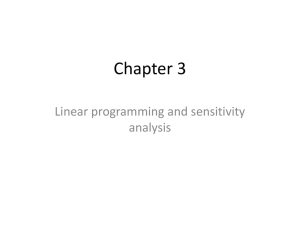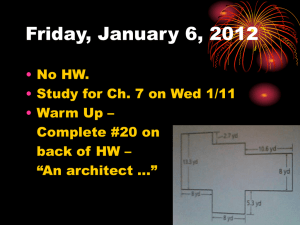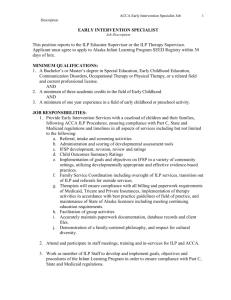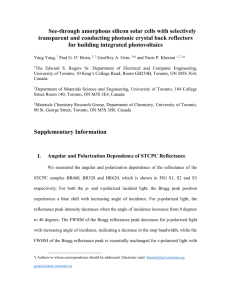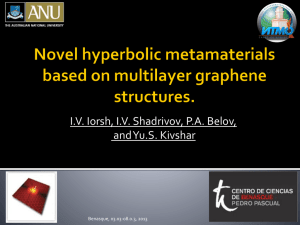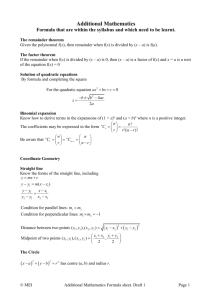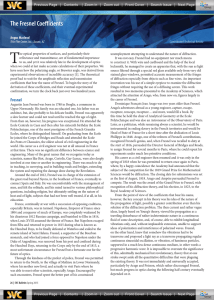The Electric Susceptibility, Dielectric Constant, and Complex Index
advertisement
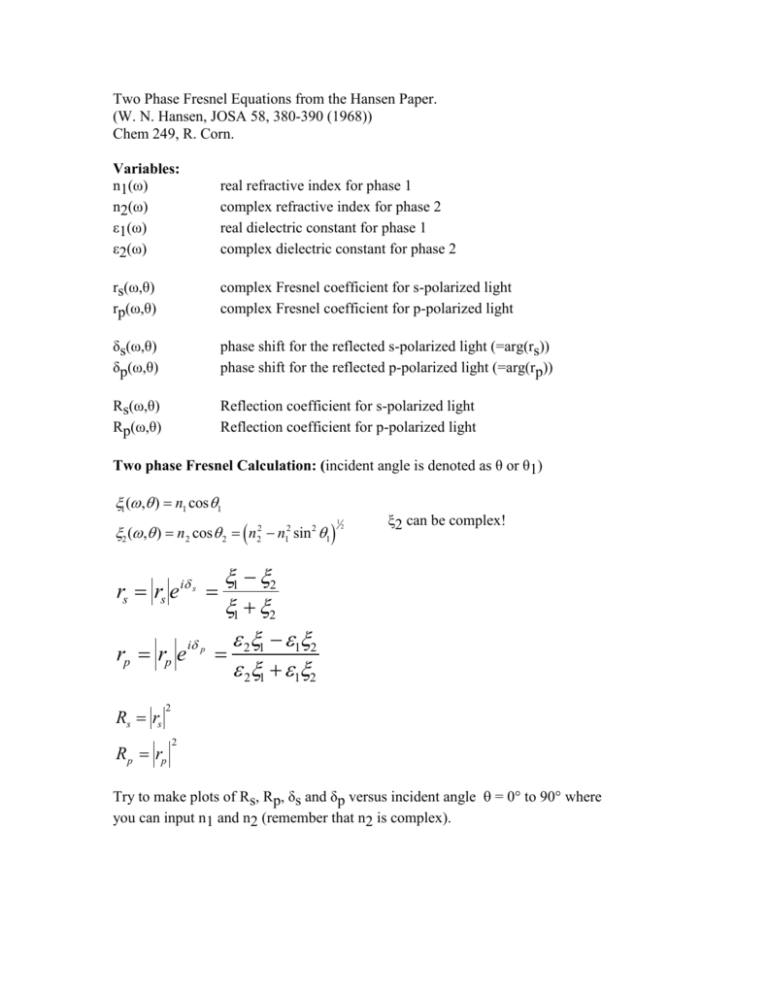
Two Phase Fresnel Equations from the Hansen Paper. (W. N. Hansen, JOSA 58, 380-390 (1968)) Chem 249, R. Corn. Variables: n1(ω) n2(ω) ε1(ω) ε2(ω) real refractive index for phase 1 complex refractive index for phase 2 real dielectric constant for phase 1 complex dielectric constant for phase 2 rs(ω,θ) rp(ω,θ) complex Fresnel coefficient for s-polarized light complex Fresnel coefficient for p-polarized light δs(ω,θ) δp(ω,θ) phase shift for the reflected s-polarized light (=arg(rs)) phase shift for the reflected p-polarized light (=arg(rp)) Rs(ω,θ) Rp(ω,θ) Reflection coefficient for s-polarized light Reflection coefficient for p-polarized light Two phase Fresnel Calculation: (incident angle is denoted as θ or θ1) x1 (w ,q ) = n1 cos q1 x2 (w ,q ) = n 2 cos q 2 = ( n22 - n12 sin 2 q1) 1 2 2 can be complex! x1 - x2 x1 + x2 e x -e x = 21 1 2 e 2x1 + e1x2 rs = rs e id s = rp = rp e Rs = rs id p 2 R p = rp 2 Try to make plots of Rs, Rp, δs and δp versus incident angle = 0° to 90° where you can input n1 and n2 (remember that n2 is complex). Hansen Two Phase Calculation: Interfacial Electric Fields. The average electric fields at an interface have components in the x, y and z directions, Where z is normal to the interface, x is in the plane of incidence, and y is perpendicular to the plane of incidence. S-polarized light has only an Ey component; p-polarized light has an Ez and an Ex component. Fields can be calculated either just above the interface (in phase 1) or just below the interface (in phase 2). Just above the interface: E y2 = [ 1 2 (1+ Rs ) + Rs cosd s ] 1 2 E in2 [( ) ] = cos q [ (1+ R ) - R cos d ] E E z2 = sin 2 q 1 2 E x2 1 2 2 1+ R p + Rp2 cos d p E in2 1 p 1 2 p p 2 in where the complex Fresnel reflection coefficients rs and rp are: rs = Rs2 exp(id s ) 1 rp = R p2 exp(id p ) 1 If we let Ein =1, then <Ein2> = ½. Just below the interface: E y2 = 12 t s E z2 = E x2 = 1 2 1 2 2 E in2 n1 sin q tp n2 x2 n2 2 E in2 2 tp E in2 where the complex Fresnel transmission coefficients ts and tp are: 2x1 x1 + x2 n1 é 2e 2x1 ù tp = ê ú n 2 ë e 2x1 + e1x2 û ts = Remember that n2 can be complex!

